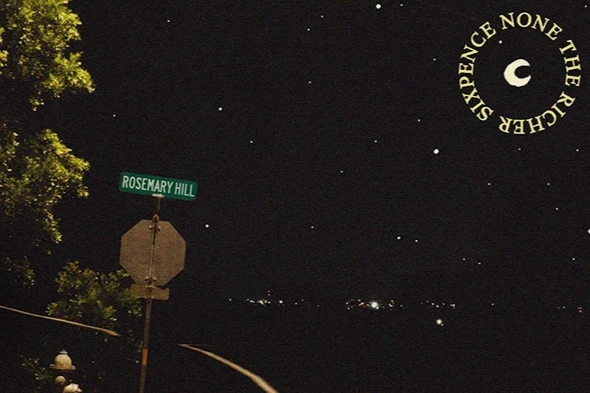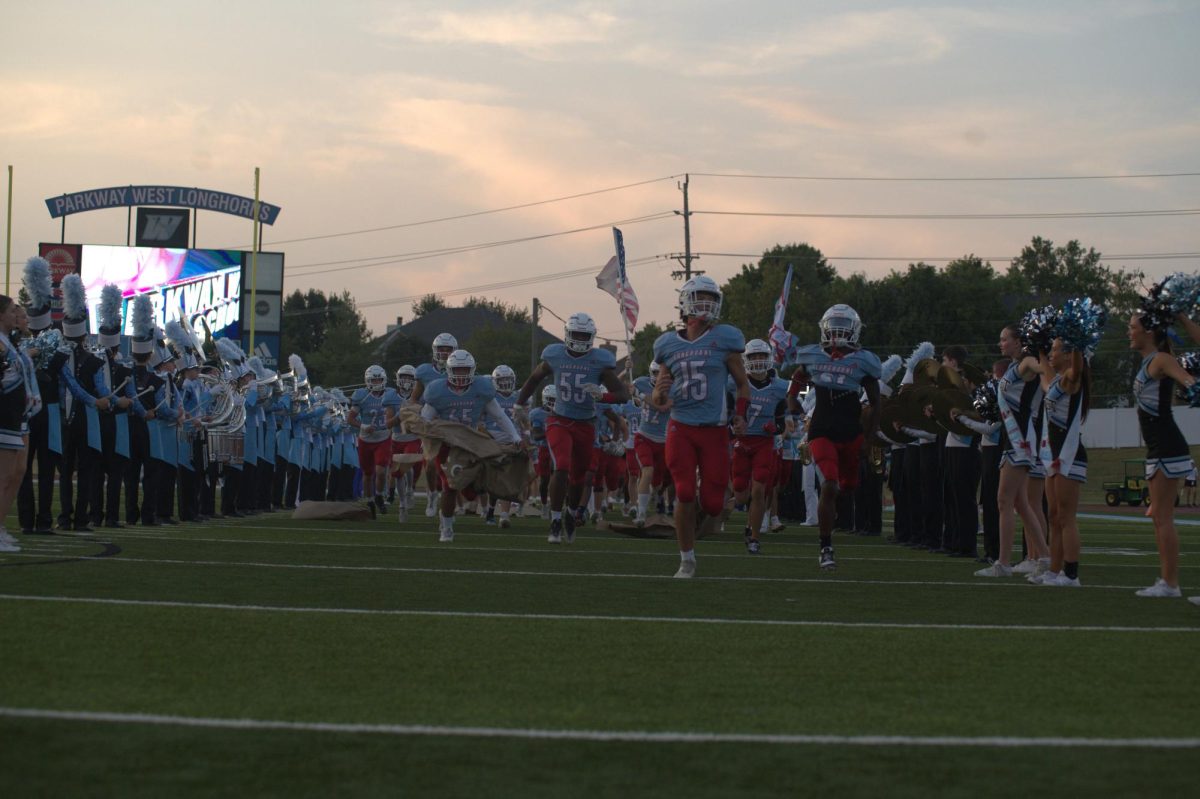It’s been easy to snicker at Darren Aronofsky’s “Noah”. The notion of “Requiem for a Dream” filmmaker taking on a Bible epic was enough to turn some heads, and trailers framing the film as a “Day After Tomorrow”-style action ride only added to the confusion. Controversy started, and as news broke that Paramount was testing out alternate cuts in an effort to appease religious audiences, it begged the question: just what was Aronofsky up to?
As it turns out, he was making a much more challenging and compelling movie than anyone saw coming. Whether it will ever find an audience… well, that’s another story entirely.
Noah and his family are assisted by a group of stone titans called Watchers, fallen angels bound to Earth for helping humanity in the past. Imagine if Michael Bay’s Transformers were made of rock and you’ll get the idea, but the concept actually plays thanks to the film’s larger fantasy canvas. When it comes to the legions of animals, Industrial Light & Magic’s visual effects hit a perfect note of stylized realism — something that’s really utilized once the rain begins to fall.
Quite simply, the great flood is a marvel. I don’t know that simulated water has ever looked this real before, and as tidal waves rush in to batter the ark every other disaster movie fades from memory. But the spectacle’s not the point. Noah is a man haunted by the darker side of prophecy. Once the ark is afloat he hunkers down inside, tortured as the screams of those outside swirl around him. Convinced that his creator wants to wipe humanity out completely, he pushes his family away by drawing an impossibly hard line with his wife and children. He curses the actions he feels forced to take while simultaneously insisting he has no alternative. In many ways Noah is a Bible story about the destructive nature of blind faith, an audacious choice that gives the story weight even though we already know the ending (spoiler: humanity survives).
The grand setting also serves as a playground for unfortunate melodrama, an issue that Aronofsky’s run into before. Ray Winstone and Jennifer Connelly are both wonderfully consistent actors, but here — as Noah’s nemesis and his wife, respectively — they barrel into the land of groan-worthy theatricality, particularly when playing off the emotionless, resolute side of Crowe. As Methuselah, Anthony Hopkins chews the same scenery he’s been working on in the last two Thor films, while Noah’s three sons come off as vague outlines. It’s Emma Watson (the Harry Potter series) that steps in to bind the cast together. As Noah’s adopted daughter, Ila, she’s vulnerable and human, providing the gut-level emotional stakes the movie desperately needs once everyone heads inside the ark
It’s such an odd mix of styles and choices that it’s hard to believe it holds together at all — but thanks to Aronofsky’s earnest commitment, it does. More than anything else, the movie calls to mind Bram Stoker’s Dracula, another inventive take on a well-known tale that dazzles even while carrying the burden of some significant flaws.
In a sense, Noah seems almost designed to underwhelm at the box office. Rather than leaning on spectacle or the easy crutch of a well-known tale, it challenges audiences with its portrayal of a mysterious, potentially cruel creator. It dares the viewer to hate its hero, and the unrelenting beliefs turning him from man to monster. It is at that point that “Noah” reveals its true areas of interest: the giving nature of the human heart, and the power of free will in the face of dogma. Those are noble sentiments to explore no matter what you believe in, but it takes such a weird and wild boat ride to get there you start to wonder who the film is for. Despite those weaknesses, however — or perhaps because of them — “Noah” delivers the one thing that is so often missing from tent-pole movies: a soul.
Parkway West Pathfinder gives “Noah” a 7.5/10



![There are more than 20 open cardio machines at Crunch Fitness. I enjoyed the spacious environment at Crunch, a sentiment that was shared by sophomore Sanjana Daggubati. “[Going to] Crunch Fitness was the right decision because [it] feels more professional. Crunch’s workers are laid back, but not to the point where they don't care,” Daggubati said.](https://pwestpathfinder.com/wp-content/uploads/2025/09/IMG_5242-1-1200x900.jpg)

![Various empty Kit Kat wrappers crowd the desk, surrounded by scoring sheets. While production of Kit Kat flavors in the U.S. is limited, Nestlé, the owner of Kit Kat, manufactures hundreds of unique flavors in Japan, including the flavors ocean salt and passion fruit. “I thought there [were] some interesting flavors, and a lot of them were really unexpected,” senior Elle Levesque said.](https://pwestpathfinder.com/wp-content/uploads/2025/09/image-2.png)


![Pantone’s selection of the 2025 Color of the Year is revealed: Mocha Mousse. Ceramics teacher Ashley Drissell enjoys this year’s selection. “Maybe it’s the name but [Mocha Mousse] reminds me of chocolate and coffee. It makes me hungry. It’s very rich and decadent,” Drissell said.](https://pwestpathfinder.com/wp-content/uploads/2025/02/DSC_0015-1200x800.jpg)



![Sophomore Shree Sikkal Kumar serves the ball across the court in a match against Lindbergh. Sikkal Kumar has been a varsity member of the varsity girls’ tennis team for two years, helping her earn the number two rank in Class 2 District 2.“When matches are close, it’s easy to get nervous, but I [ground] myself by[staying] confident and ready to play,” Sikkal Kumar said.](https://pwestpathfinder.com/wp-content/uploads/2025/11/DSC2801-1200x798.jpg)
![Dressed up as the varsity girls’ tennis coach Katelyn Arenos, senior Kate Johnson and junior Mireya David hand out candy at West High’s annual trunk or treat event. This year, the trunk or treat was moved inside as a result of adverse weather. “As a senior, I care less about Halloween now. Teachers will bring their kids and families [to West’s Trunk or Treat], but there were fewer [this year] because they just thought it was canceled [due to the] rain. [With] Halloween, I think you care less the older you get,” Johnson said.](https://pwestpathfinder.com/wp-content/uploads/2025/10/DSC00892-1-1200x800.jpg)
![Focused on providing exceptional service, sophomore Darsh Mahapatra carefully cleans the door of a customer’s car. Mahapatra has always believed his customers deserve nothing less than the best. “[If] they’re trusting us with their car and our service, then I am convinced that they deserve our 100 percent effort and beyond,” Mahapatra said.](https://pwestpathfinder.com/wp-content/uploads/2025/10/DSC_0018-1200x800.jpg)
![Sophomore Aleix Pi de Cabanyes Navarro (left) finishes up a soccer game while junior Ava Muench (right) warms up for cross country practice. The two came to Parkway West High School as exchange students for the 2025-2026 school year. “The goal for the [exchange] program is to provide opportunities for both Parkway students and our international exchange students to learn about other cultures, build connections and become confident, capable, curious and caring — Parkway’s Four C’s — in the process,” Exchange Program Lead Lauren Farrelly said.](https://pwestpathfinder.com/wp-content/uploads/2025/10/Feature-Photo-1200x800.png)
![Leaning on the podium, superintendent Melissa Schneider speaks to Parkway journalism students during a press conference. Schneider joined Parkway in July after working in the Thompson School District in Colorado. “My plan [to bond with students] is to get things on my calendar as much as possible. For example, being in [classes] is very special to me. I am trying to be opportunistic [meeting] kids [and] being in [the school] buildings. I have all the sports schedules and the fine arts schedules on my calendar, so that when I'm available, I can get to them,” Schneider said.](https://pwestpathfinder.com/wp-content/uploads/2025/09/IMG_5425-1200x943.jpeg)
![Gazing across the stage, sophomore Alexis Monteleone performs in the school theater. The Monteleone family’s band “Monte and the Machine” has been releasing music since 2012, but Alexis started her own solo career in 2024 with the release of her first single, Crying Skies. “My whole family is very musical, [and I especially] love writing [songs with them],” Monteleone said.](https://pwestpathfinder.com/wp-content/uploads/2025/09/DSC7463-1200x798.jpg)

![Leaping through the air, senior Tyler Watts celebrates his first goal of the season, which put the Longhorns up 1-0 against the Lafayette Lancers. Watts decided to play soccer for West for his last year of high school and secured a spot on the varsity roster. “[Playing soccer for West] is something I had always dreamed of, but hadn’t really had a good opportunity to do until now. It’s [really] fun being out [on the field], and I’m glad I decided to join the team. It’s just all about having fun with the boys and enjoying what time we have left together,” Watts said.](https://pwestpathfinder.com/wp-content/uploads/2025/09/DSC_1951-1200x855.jpg)
